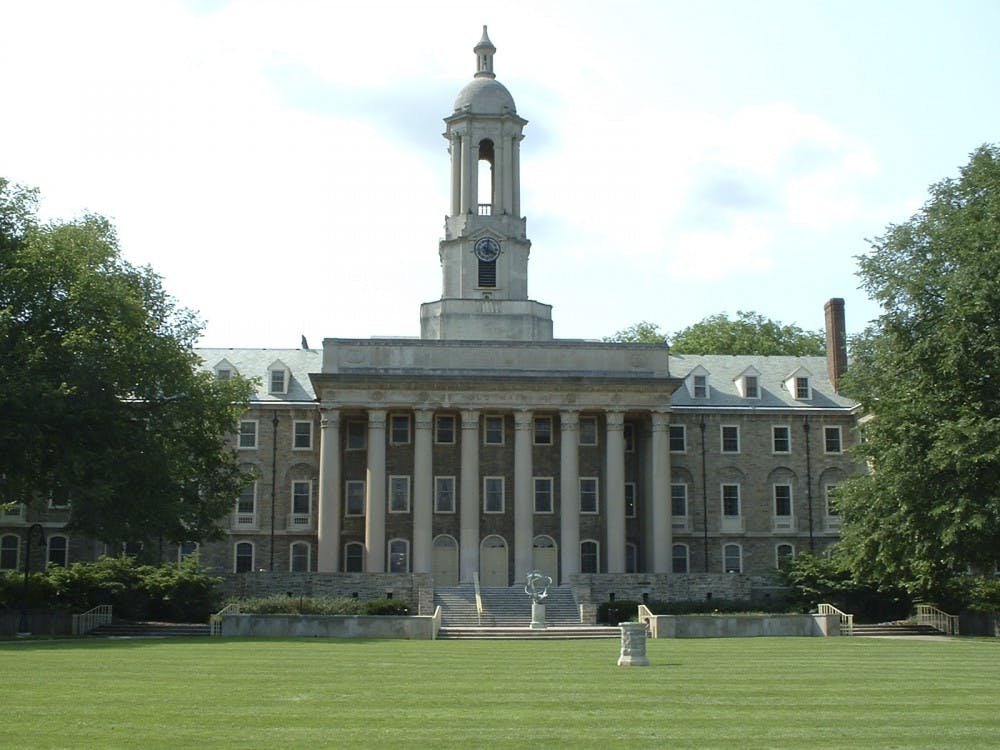
George Chris / CC 2.5
After the president of Pennsylvania State University published a letter suggesting that a fraternity member’s death might result in the banning of Greek life altogether at Penn State, Penn students maintain their support for Greek life at Penn.
Penn State president Eric J. Barron posted the open letter on his blog “Digging Deeper” April 10, just over two months after Penn State sophomore Timothy Piazza died from a fall at the Beta Theta Pi’s chapter house during his bid party.
The student’s death has drawn national attention to the security risks involved in fraternity parties, which prompted Barron to weigh the positive effects of Greek life with the negative.
“The positive is well worth protecting — the value of brotherhood and sisterhood and the great service associated with Greek life. But the stories cited above cannot continue,” Barron said in his letter. “If they do, I predict that we will see many empty houses and then the end of Greek life at Penn State.”
The Penn State Interfraternity Council responded to Barron’s letter in an open letter of their own, criticizing the university’s president for not communicating directly with them.
“We are ready to change, but transformation cannot happen without partnership and a willingness to listen to and work with one another,” the letter said. “Instead of talking through open letters in the media — it’s disappointing we have to communicate in this manner — meet with us, work with us, and collaborate with us.”
Many Penn students don’t think banning Greek life on campus is the right way to address problems with fraternity events.
President of the Panhellenic Council and College junior Caroline Ohlson said that coordination between the administration and the Greek student community is key to addressing issues in Greek life.
“I think that the best way [to problem-solve] is collaboratively between the admin and the Greek student body as a whole,” Ohlson said. “I think that the [Office of Fraternity and Sorority Life] that is currently at Penn is really strong, supportive of the community and really in touch with campus culture.”
Director of OFSL Eddie Banks-Crosson did not respond to a request for comment by the time of publication.
In September of 2012, Penn’s Phi Kappa Sigma chapter saw a similar incident to the one at Penn State. A non-Penn student attending an unregistered Phi Kappa Sigma party on New Year’s Eve died from injuries after he fell over a railing from the second floor to the first floor of the house. The death prompted the national organization to close Penn’s chapter and Penn closed the chapter house on Locust Walk.
Ohlson added that banning Greek life will only add to the security problems the community faces because they often will become off-campus fraternities, which the University cannot monitor.
“As we’ve seen with Penn’s chapters that’ve moved off-campus, they continue to function as social groups,” Ohlson said. “They just do so with even more risk because the University isn’t holding them accountable.”
A College sophomore in an on-campus fraternity said that it would be unfair for an entire community to be punished for the mistakes of one group. The student requested anonymity because he said he did not want his comments to be connected to himself or his fraternity.
“I feel like it’s a silly policy idea just because one group messed it up,” the student said. “Just because one part of some group did something wrong, it doesn’t mean that every member of that community should suffer.”
The Daily Pennsylvanian is an independent, student-run newspaper. Please consider making a donation to support the coverage that shapes the University. Your generosity ensures a future of strong journalism at Penn.
Donate



